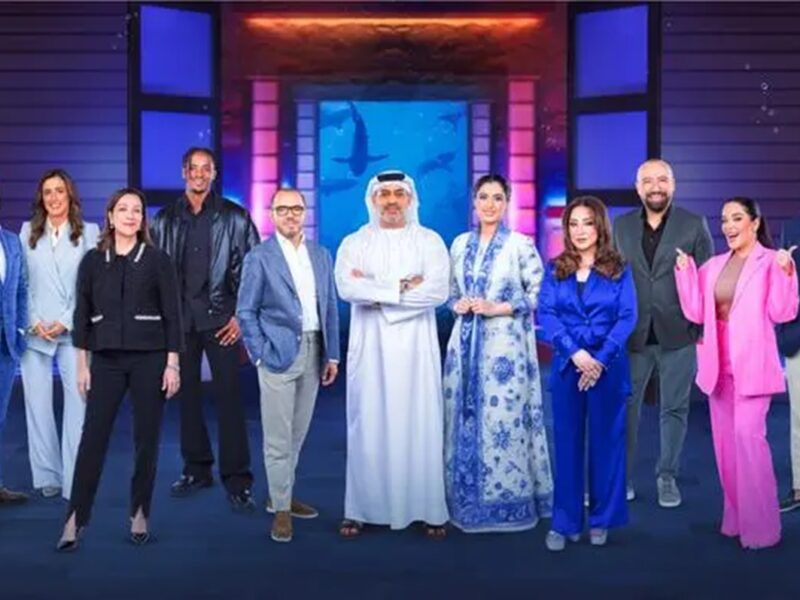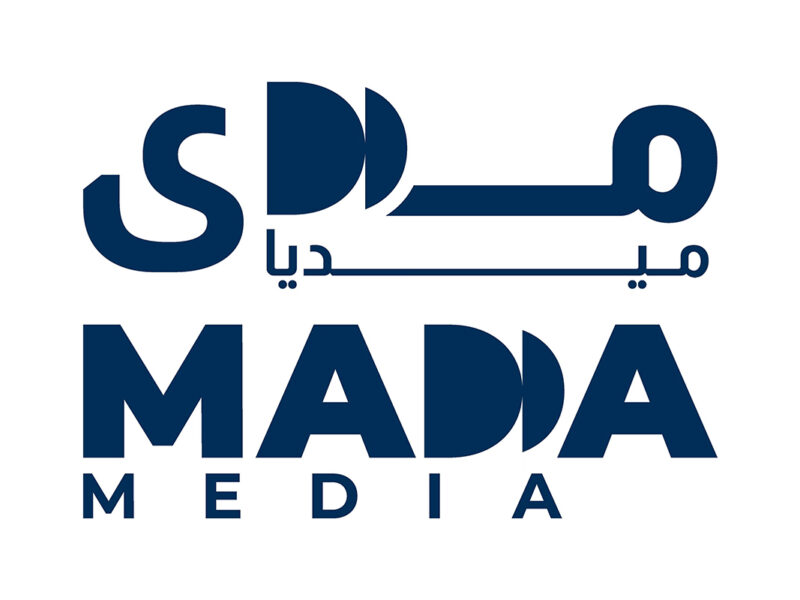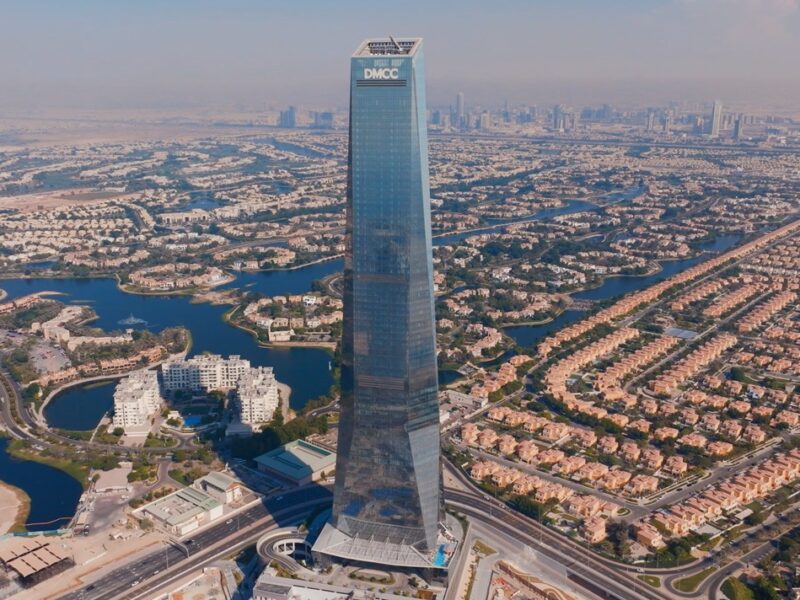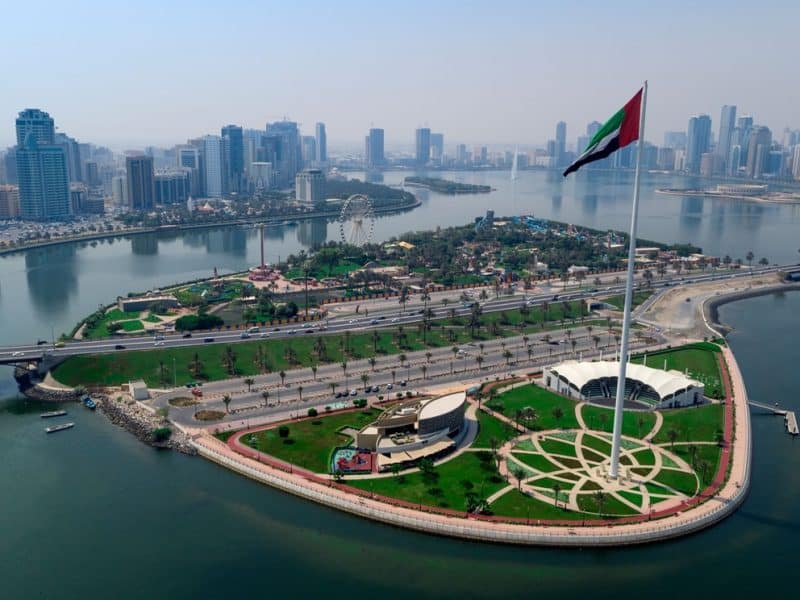Were it not for the throngs of shrieking young fans, ubiquitous selfie-sticks and hash-tagging influencers, Dubai’s recent VIDXB event may have seemed like just another trade show, complete with workshops, guest speakers, networking sessions and even visiting sheikhs. But for Dubai, the event – the first in the region dedicated to the creation of online video content – highlights the emirate’s intention to become a global hub for social media, turning what may seem like spontaneous and impromptu online antics into a formal and perhaps regulated industry.
The two-day gathering at Dubai World Trade Centre attracted dozens of the region’s – and indeed the world’s – most prominent influencers, ‘vloggers’ and Instagram stars from a variety of sectors, as well as government officials such as Sheikh Mansoor Bin Mohammed Bin Rashid Al Maktoum and company representatives from the likes of Google, Facebook, Electronic Arts, Buzzfeed and Vice.
Omar Butti, the executive director of innovation at the Dubai Film and TV Commission (DFTC), which organised VIDXB, says it was the first of a number of events that form part of a larger plan to help encourage and facilitate local content creation.
 Sheikh Mansoor Bin Mohammed Bin Rashid Al Maktoum graced the inaugural VIDXB at the Dubai World Trade Centre (DWTC)
Sheikh Mansoor Bin Mohammed Bin Rashid Al Maktoum graced the inaugural VIDXB at the Dubai World Trade Centre (DWTC)
“The Dubai Film and TV Commission has a new strategy around digital content and new media, which also includes things like virtual reality and mixed reality,” he says. “VIDXB is there as the first major event on the calendar to kick-start this new initiative… we wanted to create that opportunity for dialogue between regional and international content creators and executives to show that Dubai is truly one of the best places you can be to create content, whether regional or global.”
Butti adds that it is crucial that government entities, such as the DFTC, recognise online content creation as an often lucrative “legitimate career” because it is “going to be the bedrock for the media industry going forward.”
“These people are valuable, and they are the ones who will be creating all of our content in the future, whether it’s for YouTube, for streaming platforms or traditional TV and film. If you’re a creative person and can tell a story, you can do it in three minutes, five minutes, 20 minutes or an hour and a half,” he says. “These are the people we need to recognise and support. What we’re [hoping] to do in 2018 is start officially recognising and rewarding those people who are really making a difference to the industry.”
The rules – a murky question?According to social media experts, influencers and Dubai officials, for the city to achieve its goals of becoming a social media hub it must first answer lingering questions revolving around rules and regulations, which range from uncertainties on the legality of filming in public spaces to the rules regarding the labelling of paid content.
 Omar Butti (sitting first from right) says VIDEOXB aims to facilitate local content creation
Omar Butti (sitting first from right) says VIDEOXB aims to facilitate local content creation
Fiona Robertson, an entertainment and media attorney at the Dubai-based Al Tamimi & Co, says that while the rules are “quite clear”, for the most part they are neither followed nor enforced.
“The laws in relation to content in this part of the world apply equally to a publisher of a magazine, someone making a broadcast television programme or somebody posting on social media or online. There is no difference under the law based on the technology you’re using. Content is content.”
As an example, Robertson points to the rules which govern the clear marking of content for which a party – in this case, an influencer – received financial or other compensation for a post. “The regulations from the National Media Council do quite clearly state the need for a clear separation between editorial and advertising content…we’re not seeing that in the region yet, even though the law states that we should.”
When asked about the level of enforcement of these rules, Robertson replies without hesitation that “we could possibly go to zero on that, that I’m aware of.”
Robertson’s comments are echoed by South African expat Nadine Du Toit, a popular health and fitness influencer with nearly 50,000 followers on her @GloryGirlFit Instagram account. “In the UAE, for the last few years, the relationship [between paid and other content] has not been set in black and white. When it comes to specifying when a post is an ad or a brand collaboration, that’s still a very grey area.”
 DFTC chairman Jamal Al Sharif (centre) says VIDXB was months in the making
DFTC chairman Jamal Al Sharif (centre) says VIDXB was months in the making
Faced with this uncertainty, Du Toit, like many influencers, says that she takes it upon herself to be clear with her followers, even though she believes labelling content often “takes away from the organic nature” of a post. “I don’t have a problem with it. I love being transparent and open about that. If I work with someone, I want my followers to know.”
According to Butti, from the DFTC’s perspective, the long-term goal is an industry that largely self-regulates, with minimal intervention necessary from a government perspective. This shift, he says, has already begun.
“We’re already seeing a lot more transparency in posts and content from people…we’re seeing a move in that direction, and a lot of that is due to backlash from viewers who see something as an obvious ad and don’t respond well to it,” he notes. “Currently, at the DFTC we have not directly intervened in terms of creating more transparency. The way we want to do that is have opportunities like VIDXB and smaller scale events throughout the years to come to educate, inform, and show the benefits and the reasons for doing that.”
“Ultimately, we want to be here to help facilitate production, business, and people making content,” he adds. “Long term, we’d like to be less involved in a regulatory perspective. A big success for us would be having an industry which is essentially, in some ways, self-run, understands responsibility itself and is doing its job effectively. We [would] only step in to support, push, find incentives for people and help grow the pie for everybody.”
 Rapper, comedian and actor KSI has reached over three billion video views and more than 17 million subscribers on YouTube
Rapper, comedian and actor KSI has reached over three billion video views and more than 17 million subscribers on YouTube
Regulations just over the horizonFrom a legal perspective, Fiona Robertson says she expects increasingly formal and enforced regulations to start being implemented in 2018, which – at least with regards to paid content – may be similar to those currently being rolled out in the United States.
“If you look at the way the Federal Trade Commission is operating at the moment in the US, they’re extremely clear that even if you’re doing an Instagram post or a tweet that has been paid for by a brand, even if that payment is just a free night in a hotel or a nice meal…you need to declare that, and that declaration needs to be ‘#ad’,” she notes. “What I’m anticipating is that in 2018 we’re going to see the government focussing on this a lot more, and I expect that we’ll see some notices being given out to some of the major influencers.”
A potential effect of such regulations, Robertson adds, is that the business of ‘influencing’ may become less lucrative for many practitioners, as clearly marked content in many cases leads to significantly less engagement with followers – which is what brands are after with paid partnerships. “If you have a look at some of the major influencers here, if you see one of their very clearly paid for posts, you generally see about a 50 percent drop-off, just from anecdotal evidence,” she says. “That’s obviously significant for them, as it represents less money in the bank. I do think it will affect influencers and the way they operate.”
 VIDXB is a key milestone in Dubai’s vision to become a hub for digital media and content creation
VIDXB is a key milestone in Dubai’s vision to become a hub for digital media and content creation
These regulations, Robertson says, are ultimately for the benefit of the consumer, rather than the influencers or the brands they work with. “The whole reason why any regulator is keen to ensure that there is a separation between editorial and advertising is so that there is no confusion in the eyes of the consumer. “
Butti, for his part, says that the Dubai authorities will also “need to take more steps to formalise the business transaction and the relationship between a creator and a brand”, and helping facilitate long-term relationships between influencers and brands, rather than “one-off” posts or videos which lead to “unsatisfactory” results for both parties, as well as partnering influencers and brands which fit well with each other’s target audience and content.
Dubai: the big winnerButti – himself a veteran TV presenter – says that whatever the regulations eventually look like, social media will allow regional and UAE-made content to spread around the world in a way that would be impossible through traditional forms of media such as TV and film.
“One of our biggest challenges as a media industry has always been distribution. With digital content, we now legitimately have the opportunity to compete on an international level in a way that we never have before,” he says. “That’s why global companies like Google and Facebook take the region a lot more seriously than other international production companies do, frankly. This is not the situation in which they come in to do a TV show or movie and leave. They are looking to actively invest in talent and long-term partnerships here. That’s a big shift, and very exciting. VIDXB is a small part of this, which could potentially be a game changer for the industry.”
 YouTube sensation Lele Pons (left) and model Hannah Stocking are among the most popular personalities who attended Dubai’s first VIDXB event
YouTube sensation Lele Pons (left) and model Hannah Stocking are among the most popular personalities who attended Dubai’s first VIDXB event
The region’s high levels of smartphone penetration and youthful demographics, Butti adds, mean that Dubai is the natural and obvious choice to be one of the world’s premier hubs for social media in the future. “One of our benefits as a region is our overwhelmingly young population, who are constantly on their mobile phones and consume all their content on mobile phones, are always on social media platforms and even watch TV shows and movies on their phones,” he says. “Naturally, that is one of the best ways to connect with them. Those are both the creatives and the consumers of the future.”
“Everyone should genuinely be thinking about how to leverage digital, whether it’s to sell your product, get your message across, or showcase your brand. That should be the first strategy,” he adds. “We firmly believe that this is where everything is going, or has already gone, frankly.”
FTC versus influencersIn April, the US Federal Trade Commission sent out more than 90 “educational letters” to influencers and brands reminding them to ensure that they disclose “material connections” when they endorse a brand.
Later in the year, 21 more strongly worded warning letters citing specific Instagram posts which FTC staff believed may not be in compliance with the regulations were sent out to a number of influencers and celebrities, including model Naomi Campbell and actresses Lindsay Lohan, Vanessa Hudgens and Sofia Vergara. The recipients were given until September 30 to fully disclose compensation they received for the posts.
In Campbell’s case, the FTC noted that a post showing three Globe-Trotter brand suitcases that had come to their attention did not disclose any material connections with or compensation from the company.
What was VIDXB?The two-day VIDXB event at the Dubai World Trade Centre included dozens of sessions with prominent regional and international influencers and companies, ranging from a keynote address by YouTube’s regional head of partnerships, Diana Baddar, to talks which included
“The future of talent representation and pricing influencer deals” and “Forging a trust relationship between brands and creators” as well as technical workshops such as “Growing your YouTube subscriber base” and “Improving the sound quality of creators’ productions”.
Among the dozens of influencers on hand were UAE-based Max of Arabia, Khalid Al Ameri and Mo Vloggs, American YouTuber Casey Neistat, Saudi comedian Bader Saleh and beauty and lifestyle influencer Noor Stars.









